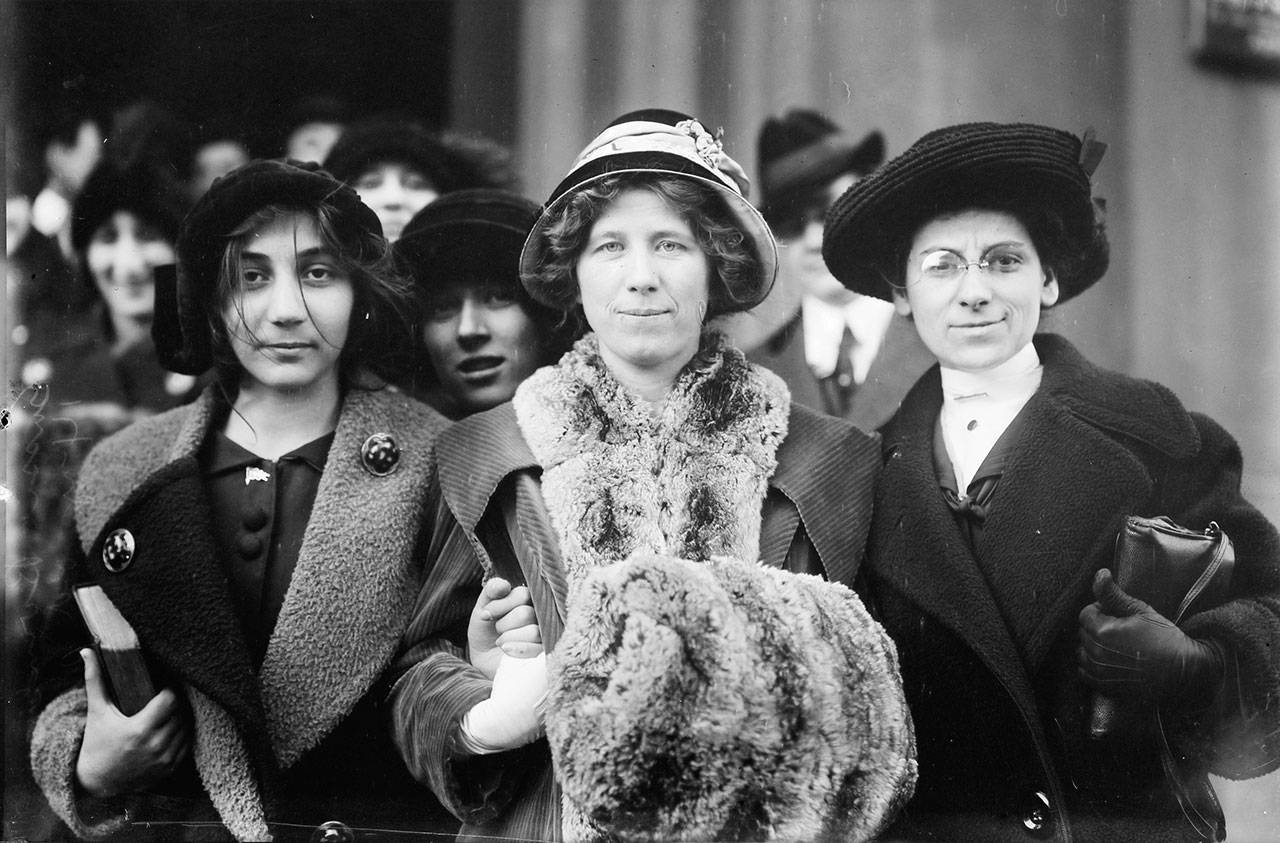League of Women Voters of Clallam County
One hundred years ago, (some) women earned the right to vote.
Let’s start at the beginning which is the signing of the Constitution of our country in 1789.
To be eligible to vote in the 13 states, a person had to be 21 years of age or older, a white male, a property owner and, in some states, a Protestant.
It was understood that women were not included.
Sixty-seven years passed before only the property requirement was eliminated in all states in 1856.
Another 12 years passed and a Civil War fought before the 14th Amendment to the Constitution passed in 1868, which gave citizenship and the right to vote to former male slaves.
Southern states began to implement poll taxes and literacy tests to keep African American men from voting.
Intimidation and violence were also used to suppress the black vote.
In an attempt to rectify some of this behavior, the 15th Amendment was passed in 1870 which (theoretically) prevented states from denying the right to vote on grounds of “race, color, or previous condition of servitude.”
Voting laws continued to evolve.
People of Chinese ancestry were barred from voting in 1882.
It was 1952 before all Asian Americans (including Japanese) were given the right to vote.
The Supreme Court ruled in 1887 that Native American men could vote if they gave up their tribal affiliation but Congress later said they would have to first apply for citizenship.
It was 1947 before all Native Americans were given the right to vote regardless of tribal affiliation.
When and what brought women the right to vote?
Women’s suffrage began in the United States in 1848 when the first Women’s Rights Convention was held in Seneca Falls, N.Y.
A set of dynamic and dangerous events were propelled into motion.
Many diverse women bravely stood up for what they believed was their right as citizens of the United States.
In 2020, we celebrate these women and the Centennial Anniversary of the ratification of the 19th Amendment which allowed some women the right to vote.
The League of Women Voters of Clallam County will tell more about the history of women’s right to vote in subsequent columns.
________
For more about the League of Women Voters of Clallam County, see Lwvcla.org

